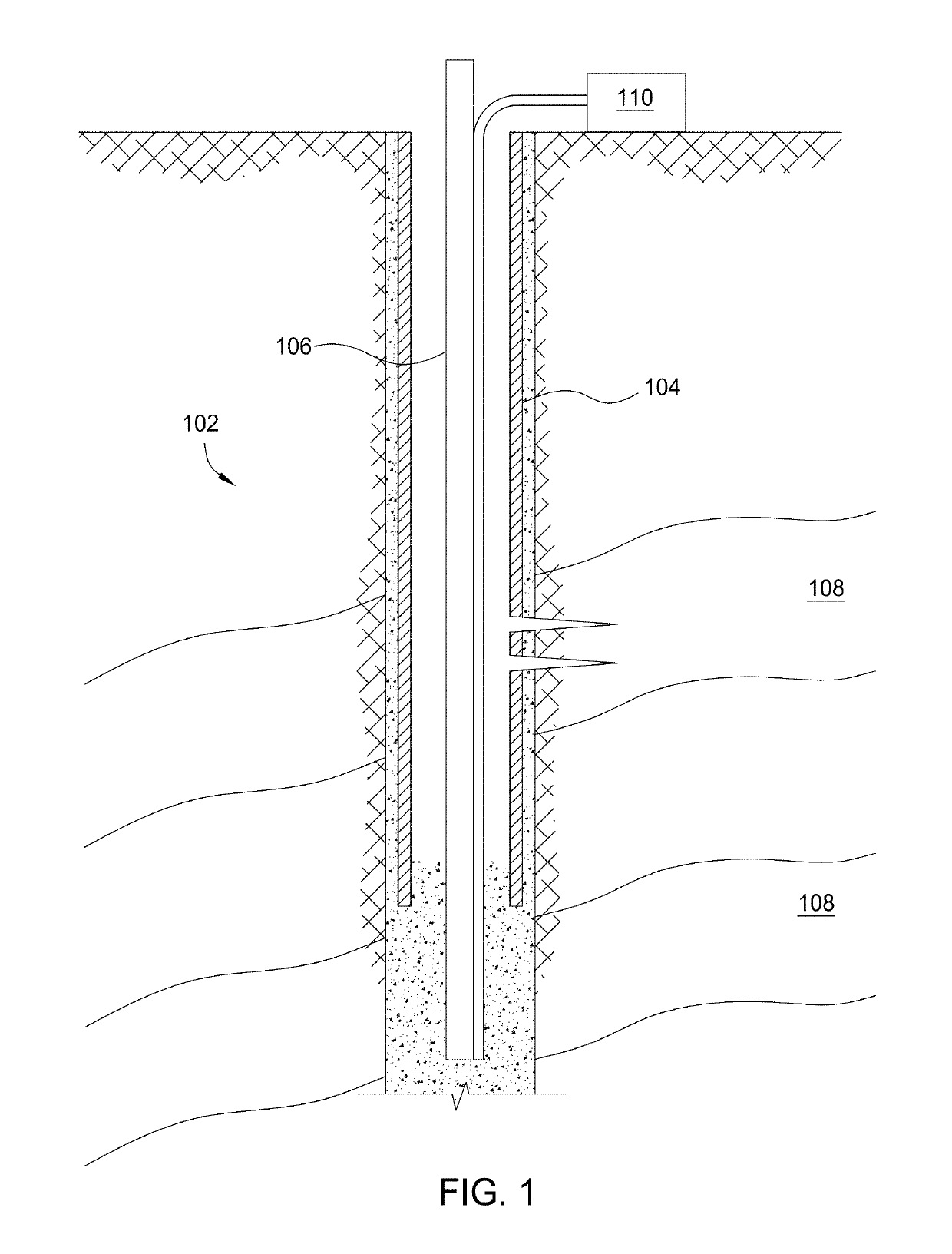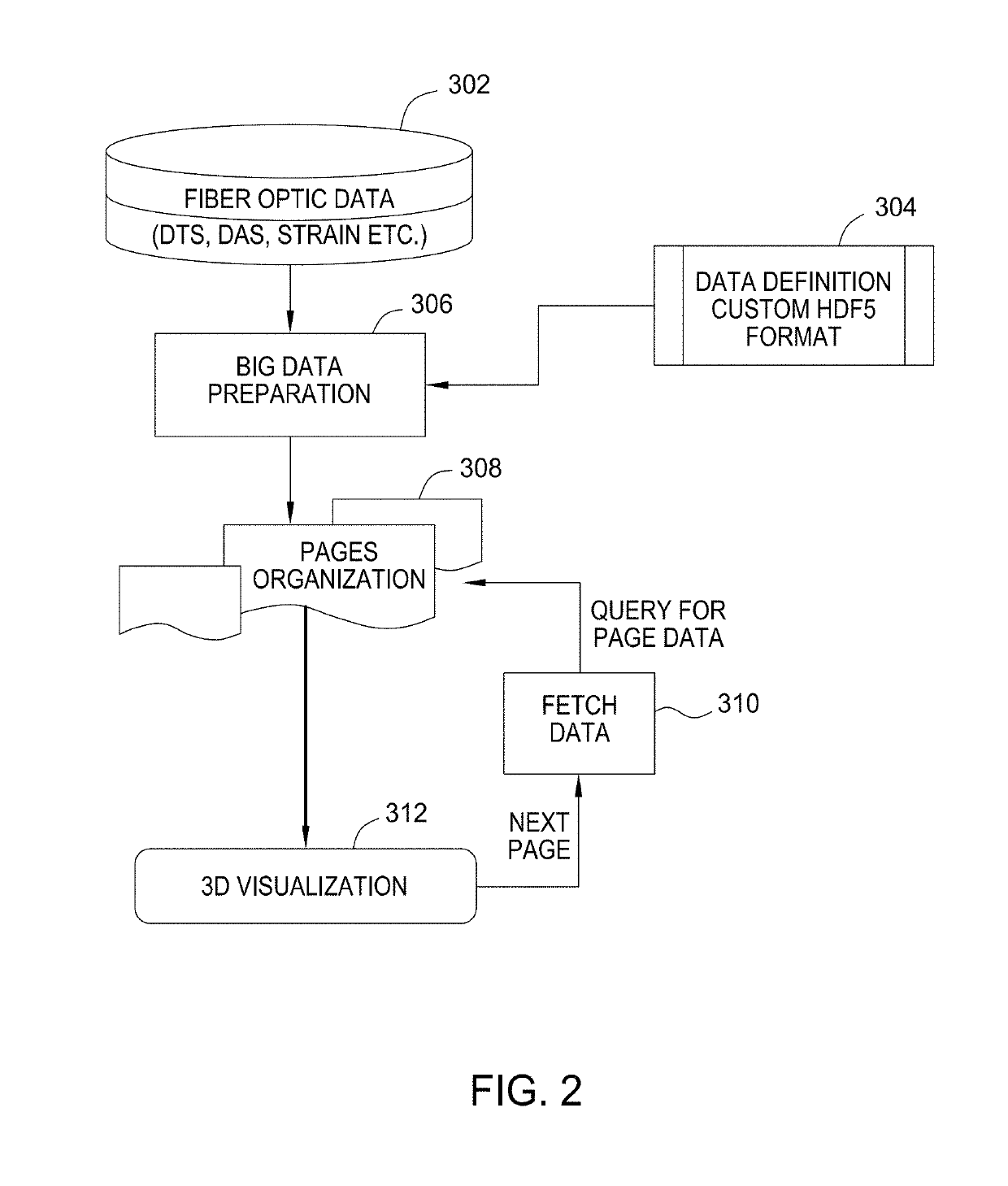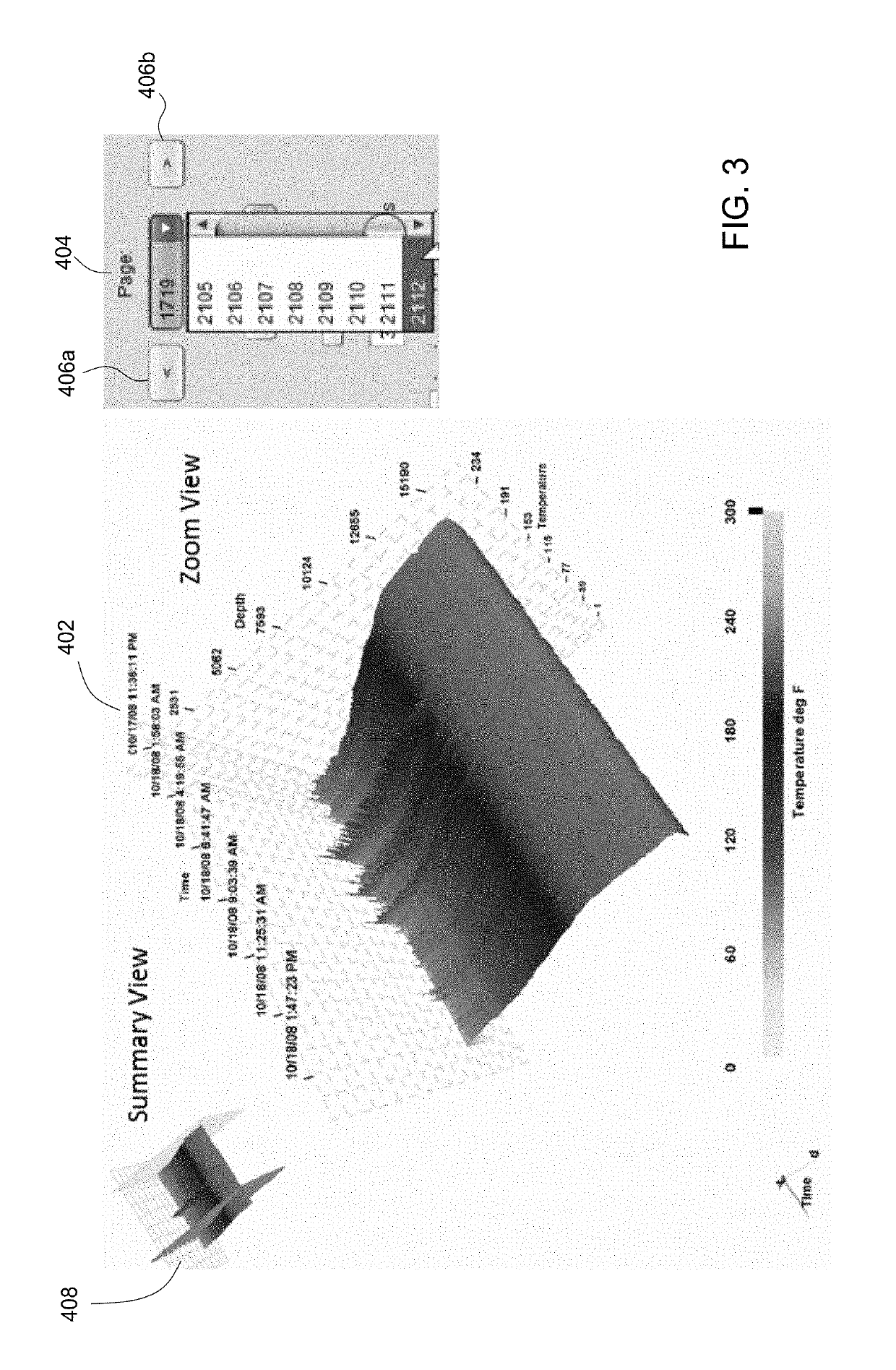3D visualization and management of reservoir monitoring data
a reservoir monitoring and 3d visualization technology, applied in the field of 3d visualization and management of reservoir monitoring data, can solve the problems of inefficient methods of analyzing such large volume of data, and relatively inaccurate interpretation and analysis, so as to maintain the integrity of original data
- Summary
- Abstract
- Description
- Claims
- Application Information
AI Technical Summary
Benefits of technology
Problems solved by technology
Method used
Image
Examples
Embodiment Construction
[0018]Data collected during reservoir monitoring may include fiber optic measurements utilizing a distributed sensing system, such as distributed temperature sensing (DTS) or distributed acoustic sensing (DAS). DTS may be based on distributed temperature derived from Raman back-scattered light from the sensor. DAS may be based on Coherent Optical time delay reflectometry (COTDR). Downhole monitoring with the distributed sensing system may generate large amounts of data, depending on the time interval and frequency of data measurements. Integrated sensing systems like distributed temperature and acoustic sensing (DTS and DAS) may also generate large data. For example, DAS data, when gathered at high frequency may generate in the order of 200 GB in a single day. As another example, distributed temperature measured along the length of the wellbore every minute, would generate 1,440 temperature profiles (24 hours×60 minutes=1,440 profiles), where each profile includes tens, hundreds, or...
PUM
 Login to View More
Login to View More Abstract
Description
Claims
Application Information
 Login to View More
Login to View More - R&D
- Intellectual Property
- Life Sciences
- Materials
- Tech Scout
- Unparalleled Data Quality
- Higher Quality Content
- 60% Fewer Hallucinations
Browse by: Latest US Patents, China's latest patents, Technical Efficacy Thesaurus, Application Domain, Technology Topic, Popular Technical Reports.
© 2025 PatSnap. All rights reserved.Legal|Privacy policy|Modern Slavery Act Transparency Statement|Sitemap|About US| Contact US: help@patsnap.com



